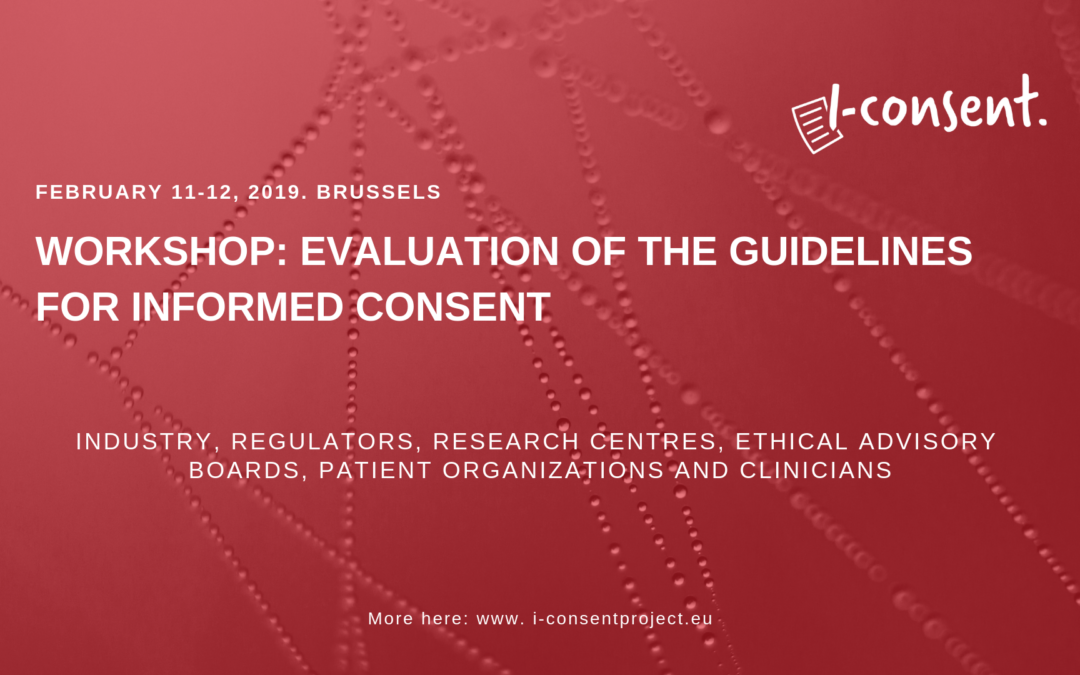i-CONSENT presents the draft guidelines to main stakeholders in Brussels
i-CONSENT has reached the second stage of the project. The draft guidelines for improving the Informed Consent Process are now finished and next step is its revision. The recommendations elaborated will be presented and discussed with the main stakeholders in Brussels next week.
Industry, ethical advisory boards, patient organizations, research centres, regulators and project members will be working together in order to come up with a multidisciplinary jointly agreed product, where all the perspectives are included. “The most important part here is that all the relevant parties are joining the debate, this is essential to us as involving patients and others in the process is at the core of the project”, states Jaime Fons-Martínez, Technical Manager of the project.
The meeting, organized in cooperation with the Delegation of the Region of Valencia in Brussels, will be held on February
11th and 12th in Brussels with a tight agenda organized as follows:
Monday, February 11th
- Panel 1: Definition of the informed consent process.
- Multi-layered approach to Informed Consent
- Innovation in Informed Consent
- Group work
- Conclusions
- Panel 2: Evaluation of the i-CONSENT recommendations to elaborate the informed consent process, including vulnerable population, under a gender perspective.
- Guidelines for Informed Consent
- Group work
- Conclusions
- Individual Conclusions
Tuesday, February 12th
- Panel 3: Discussion on the validation of the guidelines.
- Previous day highlights
- Validation of Informed Consent Guidelines
- Group work
- Conclusions
“The most important part here is that all the relevant parties are joining the debate, this is essential to us as involving patients and other in the process is at the core of the project”
i-CONSENT will put together all the feedback received and move to the next step: validate the guidelines in three countries. More information and updates will follow. Stay tuned!

I am pleased to know that the Project is growing.
Nevertheless, as a clinical physician, I have always thought that we put too much emphasis on the IC.
When a health problem is very complicated, the patient wants to be guided. In those situations there usually are many doctors involved, and as each one has his own point of view, it is rather difficult for the patient to decide. Even if he has been very well informed.
Naturally the IC is necessary, but not as the milestone of Bioethics
Thank you for your message, Martha. We completely agree with your comment. Our project is devoted Informed Consent for clinical research. The Informed Consent for clinical practice should clearly be oriented to increase health literacy; therefore our view is that these should be designed in a completely different way.